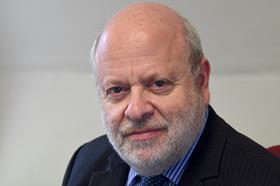I have written before about the work of the Council of Europe in drawing up a convention for the protection of lawyers.

The Council of Europe is the Strasbourg-based body with 46 members around Europe, including the UK. Although Suella Braverman has come back as home secretary and has previously expressed the wish for the UK to leave the Council’s European Convention on Human Rights (ECHR), previous governments, including the Truss government, have rejected that, and I assume that this government will do the same. Therefore, it looks as if we will remain a member into the indefinite future. So the work of the Council of Europe, and its future convention protecting lawyers, are of importance to us.
Lawyers’ professional rights are currently covered by generic articles of the ECHR, or by international guidelines which are not binding. A convention protecting only lawyers raises interesting questions, to which there are no easy answers. Since it is intended to be binding, the questions become more acute.
First, who is covered by it? In other words, what is a lawyer? To take just the UK, we can assume that solicitors and barristers (or advocates) in our three jurisdictions are covered. But what about legal executives? Or registered immigration advisers, or accountants providing legal services? Nearly every jurisdiction will have its own sub-set of practitioners who maybe should or should not be within protection.
A satisfactory definition of a lawyer covering all of Europe will probably never be found. For instance, we in the UK would positively wish in-house lawyers to be within the definition. Doubtless, other European jurisdictions, where in-house lawyers are not considered to have sufficient independence to be members of their bars, would just as definitely not wish them to be within it. Yet in both cases similar individuals are providing legal services.
When the EU had to consider the same question through its directives covering the free movement of lawyers, it solved the problem by asking the member states to name which professions each wanted covered. Maybe the same solution will be found here, even if some may have reservations about allowing illiberal governments to decide whom to cover.
The same difficulties arrive when considering the substance of protections. Everyone agrees that lawyer-client confidentiality should be included. We know what our law means (confidentiality belongs to the client, and can be waived by the client). The French know what their law means (confidentiality belongs to the lawyer, and cannot be waived by the client). How do we straddle the two? There are plenty of other differences, too, given the 46 member countries.
There will have to be an agreement covering a minimum protection. That may not be as difficult as it initially sounds, because there is an existing text which does just that. The Council of Bars and Law Societies of Europe (CCBE) has a code of conduct and a charter of core values, in which lawyer-client confidentiality – or professional secrecy. The CCBE also covers 46 countries. It would seem sensible if the convention drafters start from existing texts, to avoid rehashing old arguments.
Next, there is agreement that professional associations should also be protected. Lawyers should have a right to form and join them. But what exactly are they? On the barristers’ side, will the Inns of Court or the General Council of the Bar, or both, be considered as professional associations?
If all this sounds airy-fairy, there have been eight reported cases brought against the UK for alleged breaches of lawyers’ rights under the ECHR. One of them, relating to the assassination of a solicitor in Northern Ireland (Finucane v. UK, No. 29178/95, 1 July 2003), focused on allegations that the killing occurred in circumstances giving rise to suspicions of collusion of the security forces with his killers.
Last year, the Committee of Ministers of the Council of Europe, its principal decision-making body, ‘decided to reopen their consideration of the individual measures in the case of Finucane in order to supervise the ongoing measures to ensure that they are adequate, sufficient and proceed in a timely manner’. This followed the refusal of the UK government to hold a public inquiry into the assassination – an announcement made at the time by none other than the last lord chancellor, Brandon Lewis, when he was secretary of state for Northern Ireland.
The UK has a member on the committee of experts drawing up the convention – the committee is called CJ‑AV – and the UK is obviously represented in the Committee of Ministers. The UK professional bodies are trying to ensure that the future text makes sense for our domestic circumstances, and offers meaningful protections.
We have seen from the political chaos of recent days that the future even of stable economies and societies can be overcome by risk. It is safer if lawyers’ rights are enshrined in a convention.
Jonathan Goldsmith is Law Society Council member for EU & International, chair of the Law Society’s Policy & Regulatory Affairs Committee and a member of its board. All views expressed are personal and are not made in his capacity as a Law Society Council member, nor on behalf of the Law Society































1 Reader's comment